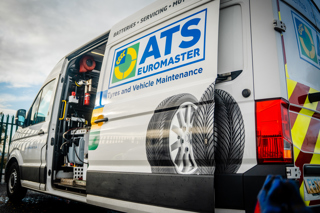Could other fleets do parts recycling?
Phil Clifford, fleet and technical manager at St Edmundsbury Borough Council,has dabbled with parts recycling in the past, at one point saving £10,000-£12,000 on heavy commercial vehicles and £3,000-£4,000 on light commercial vehicles.
“The principal is very sound,” he says. “Why spend £10,000 on a new engine for a vehicle near the end of its life when you could spend £2,500?”
However, he adds that there are regulations to consider.
“You have to be careful about the end of life vehicle directive; you have to be registered to scrap a vehicle.”
A fleet also needs to have a number of vehicles whose parts will match.
“If you haven’t got the commonalty of vehicles it’s harder to swap parts over,” says Clifford.
St Edmundsbury Borough Council’s new vans are no longer like for like which has meant Clifford does very little parts recycling now.
Flint agrees that is difficult for a single operator to do parts recycling.
“If you own your vehicles you need to weigh up the time to do it yourself, the legislation, the health and safety regulations and the costs.
“You could take a part off a vehicle but then what would you do with the rest of the vehicle?”
Cross believes parts recycling could work for private sector fleets although a different scheme to the police’s may need to be developed as private sector fleets might not want to share parts with another brand.
He is currently conducting trials with private sector fleets.
He points out that in a write-off situation “anyone can exercise the right to retain the vehicle”.
“The insurance company generally doesn’t say no if you want to retain the vehicle.”
However, the company will need to reach a settlement with its insurance provider.
Similarly, a fleet that self-insures and leases would need to settle with its leasing provider if they wished to retain the salvage.
More on page five






















Login to comment
Comments
No comments have been made yet.